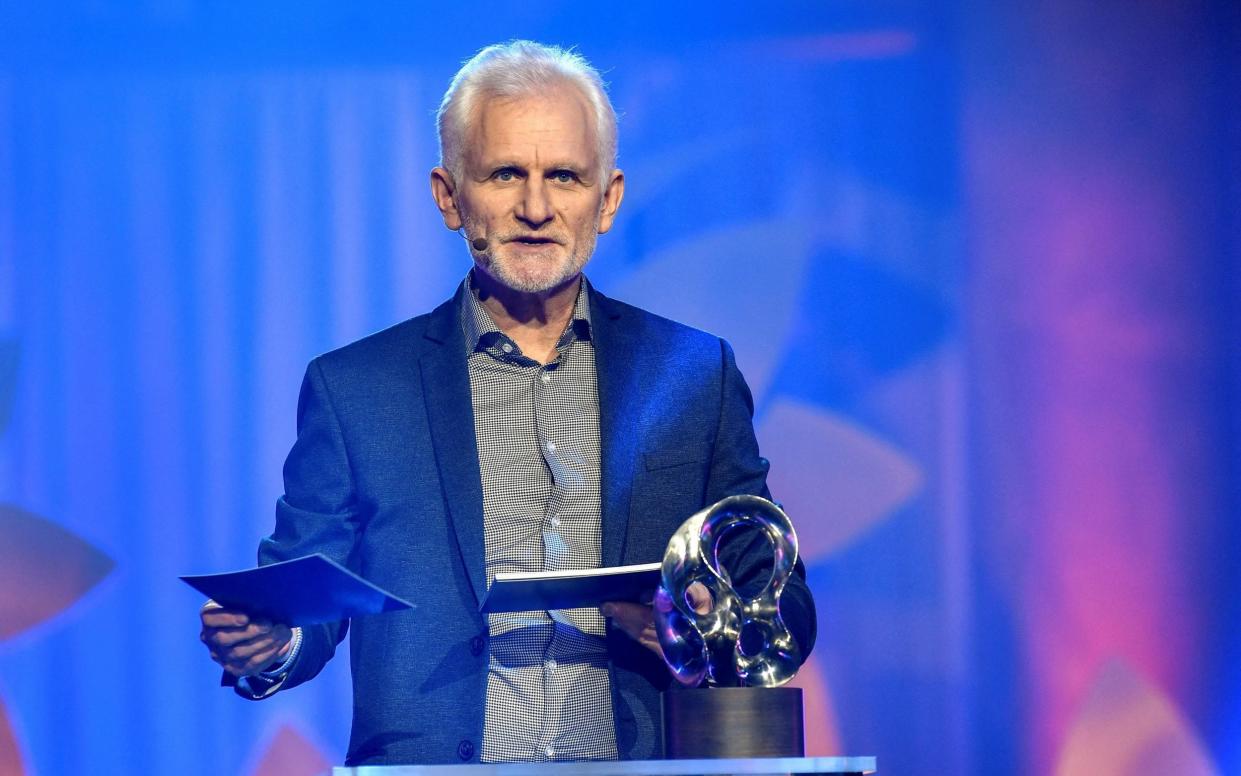Nobel Peace Prize winners 2022: Russian human rights organisation shut down by Putin among winners

A Russian human rights organisation shut down by Vladimir Putin for documenting the crimes of the Soviet regime has won this year’s Nobel Peace Prize along with a Ukrainian NGO investigating Russian atrocities and a jailed Belarusian activist.
Memorial, Russia’s oldest human rights group, Ales Bialiatski, who founded Viasna in 1996, and Ukraine’s Centre for Civil Liberties (CCL), have all been awarded.
The panel wanted to honour “three outstanding champions of human rights, democracy and peaceful coexistence,” said Berit Reiss-Andersen, chair of the Norwegian Nobel Committee.
“We are in the midst of a war and we are talking about two authoritarian regimes and one nation fighting a war and we would like to highlight the importance of civil society.”
But the announcement was met with anger by some Ukrainians who felt their response to the Russian invasion should not be bundled in with rights struggles in the very countries behind the military aggression.
Memorial is Russia’s oldest human rights group and was co-founded by Andrei Sakharov, the Nobel Peace Prize winner, in 1989.
It has played a unique role in Russian society, primarily by documenting the crimes of the Stalin regime and preserving the memory of millions of people wrongfully executed and imprisoned under the Soviet Union. The group has also led important advocacy missions in Russia’s North Caucasus and elsewhere.
But the Kremlin had been increasingly irritated about Memorial’s work, seeing it as an attempt to undermine Russia’s glorious past.
The group was forced to disband at the end of last year, ostensibly due to violations of Russia’s notorious foreign agent law.
‘Moral strength’
“This prize gives moral strength,” said Yan Rachinsky, the head of Memorial, adding that this was “very important” in “depressing times”.
The prize was also awarded to Ukraine’s Centre for Civil Liberties, which has documented Russian atrocities committed during this year’s full-scale invasion, meticulously collecting evidence of the crimes and testimony of the victims.
CCL in recent months trained hundreds of ordinary Ukrainians on how to collect evidence and conduct interviews so that the material they gather could then be admissible for future court proceedings against Russia.
This prize was also awarded to Mr Bialiatski, founder of Belarus’ best-known human rights groups Viasna, who has been in jail since last summer along with dozens of his colleagues for what the Belarusian regime views as plotting civil unrest.
Viasna played a crucial role in documenting horrific abuses of Alexander Lukashenko’s security forces in cracking down on months-long opposition protests in Belarus in 2020.

On Friday, Sviatlana Tsikhanouskaya, leader of the Belarusian exile, hailed Mr Bialiatski as “the pride of Belarusians” who celebrated his 60th birthday in prison last month.
The prize was in “recognition for all Belarusians fighting for freedom and democracy,” she said.
Backlash over awards
But a spokesman for the country’s foreign ministry lashed out at the Nobel Prize Committee for “politicising” the award, arguing that Alfred Nobel must be “tormented and turning in his grave” at the choice.
Some activists and politicians in Ukraine were also angry - although for different reasons.
Mykhailo Podolyak, an adviser to the Ukrainian president, on Friday berated the Prize Committee for arranging for the three countries to receive the prize together: “Neither Russian nor Belarusian organisations were able to put up resistance to the war,” he tweeted.
Amid the celebrations, a court in Moscow on Friday ordered the seizure of Memorial's Moscow headquarters, which houses a unique archive of Gulag prison camp documents.
A Moscow court ordered the office to "become state property", the Interfax agency reported.
Memorial has been under attack from the Russian government for years as it used to be the go-to source for reports of torture and enforced disappearances in Chechnya under Ramzan Kadyrov.
Natalya Estemirova, a long-time Memorial activist, who had been threatened by Mr Kadyrov, was kidnapped and found dead near Chechnya’s border in 2010.

 Yahoo News
Yahoo News 
